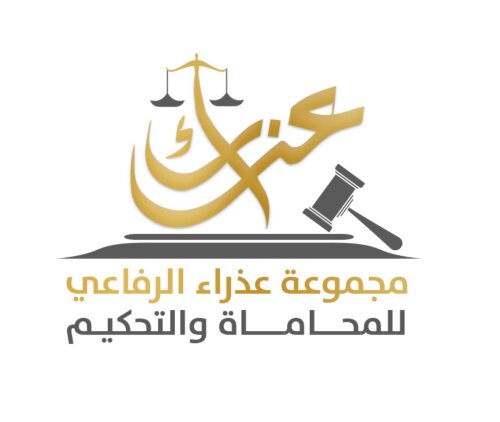Best Faith-Based Law Lawyers in Kuwait
Share your needs with us, get contacted by law firms.
Free. Takes 2 min.
Or refine your search by selecting a city:
List of the best lawyers in Kuwait
About Faith-Based Law in Kuwait
Faith-Based Law in Kuwait operates within the framework of Islamic law, commonly known as Sharia. Kuwait's legal system is a mix of civil law and Islamic legal traditions. Sharia law predominantly influences personal status matters such as marriage, divorce, and inheritance. The country’s judiciary is composed of secular courts for civil, commercial, and criminal matters, as well as religious courts that handle personal status issues for Muslim citizens. Non-Muslims in Kuwait may use their religious laws in personal matters, recognized by the Kuwaiti legal system. Understanding the nuances of faith-based legal proceedings in Kuwait is crucial for anyone navigating these laws, particularly for those unfamiliar with Islamic law.
Why You May Need a Lawyer
There are several situations where individuals might require legal assistance in Faith-Based Law in Kuwait. These include, but are not limited to, marriage contracts, divorce proceedings, custody of children, inheritance disputes, and the execution of wills. Given the complexity of Sharia law and its impact on personal status matters, legal counsel can help ensure that your rights are protected and that proceedings are carried out according to the law. Moreover, for expatriates or non-citizens, understanding the interplay between Kuwaiti law and their personal religious laws is essential, often necessitating professional legal guidance.
Local Laws Overview
Kuwait’s Faith-Based Law primarily revolves around the application of Sharia. Key areas include:
- Marriage and Divorce: Sharia outlines specific conditions and rights regarding marriage contracts and allows for divorce under various circumstances. Legal representation can help interpret these in present-day contexts.
- Inheritance: The division of estate according to Islamic jurisprudence is a crucial aspect, often involving detailed calculations based on the Quranic directives.
- Child Custody: Custody rights and duties are defined under Sharia, and disputes may necessitate resolution in family courts.
- Wills and Endowments: While Sharia sets guidelines for the distribution of wealth, the creation of wills and the management of endowments (waqf) are subject to both civil and religious oversight.
Frequently Asked Questions
1. What is Sharia law and how does it affect legal matters in Kuwait?
Sharia law is a religious legal system derived from Islamic teachings. In Kuwait, it is applied primarily to personal status laws affecting marriage, divorce, inheritance, and family law.
2. Can non-Muslims use their religious laws for personal status matters in Kuwait?
Yes, non-Muslims can seek to have their personal status issues addressed based on their religious laws, which Kuwait recognizes in diverse family law cases.
3. How is inheritance determined in Kuwait under Sharia law?
Inheritance under Sharia is distributed according to specific Quranic rules, detailing shares based on familial relations.
4. Do international marriages require specific considerations under Kuwaiti law?
Yes, international marriages may need additional certification, and understanding both local and international legal implications is important.
5. What rights do women have in divorce under Islamic law in Kuwait?
Women can seek divorce under several circumstances, often requiring proof of grounds like harm or incompatibility, and each case may involve negotiation of rights and entitlements.
6. Are pre-marital agreements recognized under Kuwaiti law?
Kuwaiti law permits marriage contracts, including agreements that detail specific conditions agreed upon by both parties prior to marriage.
7. How are custody disputes resolved under Sharia law?
Custody disputes are resolved focusing on the welfare of the child, with younger children often prioritized for care by mothers unless circumstances suggest otherwise.
8. Can expatriates draw wills in accordance with their own religious laws?
Yes, but it is advisable to consult legal experts to ensure compatibility with Kuwaiti law and proper recognition.
9. What are the procedures for setting up an Islamic endowment (waqf) in Kuwait?
Establishing a waqf involves legal processes under both civil and religious laws, ensuring compliance with local regulations and religious guidelines.
10. How can one enforce a foreign court decision about personal status matters in Kuwait?
Foreign decisions might be recognized in Kuwait, yet enforcement can require specific legal processes and verification of compliance with local laws.
Additional Resources
Several resources can assist anyone needing guidance in Faith-Based Law in Kuwait, including:
- Ministry of Justice: Provides essential information on legal processes and the functioning of courts.
- Kuwait Bar Association: Offers directories of qualified lawyers specializing in Faith-Based and Sharia law.
- Islamic Legal Foundation: Supplies educational materials on understanding Faith-Based Law.
- Non-profit organizations: Many non-profits provide support and advocacy for legal rights in family and personal status issues.
Next Steps
If you require legal assistance with Faith-Based Law in Kuwait, consider taking the following steps:
- Identify Your Legal Needs: Understand the specifics of your situation and the areas requiring legal attention.
- Seek Professional Advice: Contact a lawyer who specializes in Faith-Based Law to evaluate your case and provide guidance.
- Prepare Documentation: Gather all relevant documents and evidence that could support your case.
- Follow Legal Procedures: Adhere to advice provided and fulfill all legal requirements as directed by your counsel.
Properly navigating the legal landscape in Kuwait, especially in faith-based matters, can significantly impact the outcome of your situation, emphasizing the need for competent legal assistance.
Lawzana helps you find the best lawyers and law firms in Kuwait through a curated and pre-screened list of qualified legal professionals. Our platform offers rankings and detailed profiles of attorneys and law firms, allowing you to compare based on practice areas, including Faith-Based Law, experience, and client feedback.
Each profile includes a description of the firm's areas of practice, client reviews, team members and partners, year of establishment, spoken languages, office locations, contact information, social media presence, and any published articles or resources. Most firms on our platform speak English and are experienced in both local and international legal matters.
Get a quote from top-rated law firms in Kuwait — quickly, securely, and without unnecessary hassle.
Disclaimer:
The information provided on this page is for general informational purposes only and does not constitute legal advice. While we strive to ensure the accuracy and relevance of the content, legal information may change over time, and interpretations of the law can vary. You should always consult with a qualified legal professional for advice specific to your situation.
We disclaim all liability for actions taken or not taken based on the content of this page. If you believe any information is incorrect or outdated, please contact us, and we will review and update it where appropriate.
Browse faith-based law law firms by city in Kuwait
Refine your search by selecting a city.









